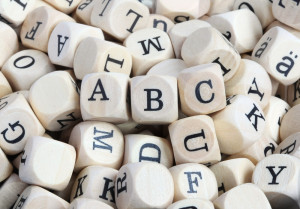English Communication: Get More of Backstory for Those Unusual Spellings of English Words
English Communication: Get More of Backstory for Those Unusual Spellings of English Words
Does understanding how changes came about in the English language make the pronunciation and spelling easier for you? Yes! It gives you the patterns for whole sets of words.
And, oh my! … the reasons for changes in the English language are fascinating.
Big change in a good number of English words started in the 11th century, when French became perceived to be the high-class or prestigious language. That was when much of our culinary or cooking, legal, and poetic vocabularies became filled with French words.
Then came the Renaissance when scholars fell in love with the ancient classics. They started borrowing large numbers of words. Thus, many of our scientific and technical terms come from Latin and Greek. Most of the Greek words came first through Latin, with Latin ideas of how to spell them.
Scholars decided that words already in the language should imitate their heritage of Latin and Greek. They figured that “peple” originated with the Latin “populus.” Thus the spelling should imitate the original word. So an “o” was added to make it “people.”
In like manner “det” got it’s “b” from “debitum”
Many words had letters added: “indi(c)table,” “fau(l)t.”
Sometimes the words changed their pronunciation to match the spelling as in “fault.”
A note for you. Sometimes the re-spellers were right about the origins of the word or etymology. And sometimes they were wrong. Ile became “isle” because the original word comes from “insula” (thus the sa). However, “island” was not originally “insula.” Instead it is from Old English “iegland.”
Be sure to watch our English Speech Tips videos and Accent Reduction Tip videos for more English pronunciation and accent reduction exercise.
Check out our new advanced weekly speech tip program, our new subscription called ClearTalk Weekly, www.subscription.cleartalkmastery.com
Rerun from March 2, 2016









Leave a Reply